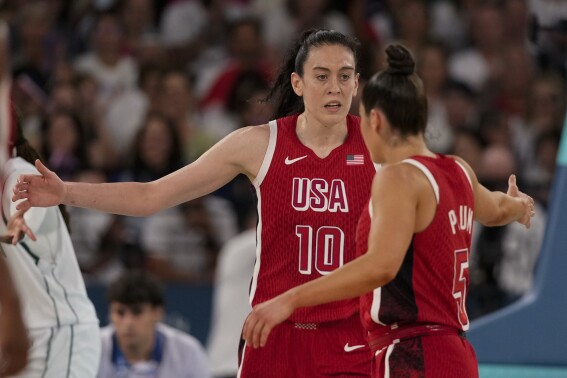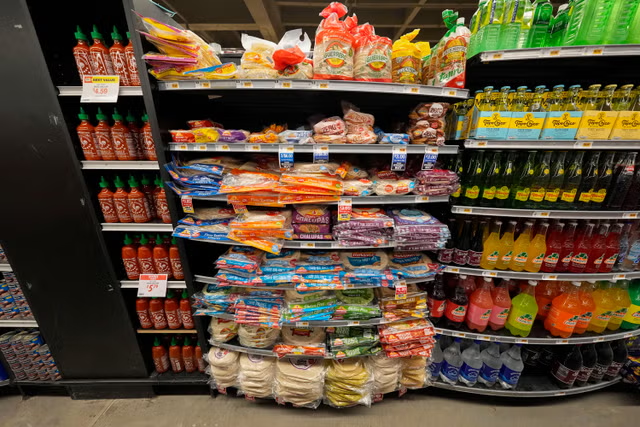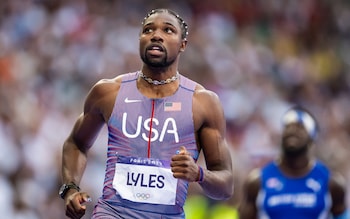In this regular new series, Ageless Beauty, The Telegraph’s beauty experts Annabel Jones and Lisa Armstrong tackle the conundrums they’ve been searching for answers to, and share their favourite tips and tricks. This week, they discuss why they take so many supplements. Ask them your questions below...
Until recently, I didn’t bother with supplements, apart from vitamin D during the pandemic. The market is scandalously unregulated and every few years a study tells us we’re peeing our money away on vitamins that don’t get adequately absorbed.
But…I don’t sleep brilliantly and when I’m travelling for work, I don’t manage to eat as healthily as I do at home.
I cobbled together my own plan: magnesium for sleep Omega 3 oil for memory, Ingenious Collagen for joints and eye health. Something was working, as my sleep improved and I became free from joint paint. But it all felt haphazard: there are still days when I’m overwhelmingly tired and I suffer from bloating. Rather than adding indiscriminately to the point where I was taking scores a day, I tried a new service from W-Wellness. £50 gets you 30 minutes one-on-one Zoom time with a nutritional therapist. I found this session really useful. W-Wellness also stocks its vitamin brands based on bio-availability (the degree to which they’re absorbed by the body), sourcing (their fish oils are sustainable) and transparency.
Maz Packham, my W-Wellness nutritionist, was careful not to rubbish the formulations I was already taking (I’d researched them as thoroughly as I could). However, she pointed out I was well below the recommended daily magnesium dose of 375mg. By switching to Naked Pharmacy’s Marine Magnesium and taking two capsules at night, I’d get the right amount. My Ingenious Collagen stays in the mix, as it’s hydrolysed to aid absorption – something to look out for on the label.
Something else to check on the label if you’re buying Omega 3: a good balance between EPA and DHA should be 2:1. Try Bare Biology.
She also added vitamin D, something I took daily throughout the pandemic, but had neglected recently. “If you’re relying on the sun for your vitamin D, you need to expose your skin to midday sun for 20 minutes. A morning walk won’t do it,” says Packham. If in doubt, you can do a Boot’s home finger prick test for vitamin D deficiency. Look for one with added K2 to help transport the vitamin D into your bones.
Bloat is a common problem as we get older – the stomach doesn’t produce as much acid. I’ll be taking digestive enzymes from now on and drinking bitters before eating (a few drops of apple cider vinegar – look for one with the “mother” – added to water should do it)
A recent blood test confirmed I was iron deficient. Packham recommends Artah Essential Iron complex with acidophilus, a probiotic which makes it gentle on the stomach and vitamin C which helps absorption. I didn’t know iron, besides helping with fatigue, hair and nail strength, also plays a role in collagen synthesis.
Encouragingly, Packham didn’t push supplements as a panacea for everything. Food is medicine too. To get more protein (on average, adults need 1.5 grams a day per kilo of weight including around 30g at lunch), she recommended lunchtime frittatas with cottage cheese, herrings, mackerel or chickpeas.
For my bones, I’ll up my portions of sardines and tahini as well as leafy greens, instead of taking calcium, which isn’t easily absorbed from pills (fatty foods can boost calcium absorption). For that mid-afternoon slump, I’ll try a smoothie with unsweetened soya milk, frozen organic berries, peanut butter and New Zest protein powder. Got to be better than cake.
Lisa’s picks
I am what the wellness community refers to as a “poor methylator”. I only know this because I had a DNA blood panel done with Viavi Health only to discover I have a relatively common gene mutation that impairs my ability to detoxify and repair DNA, another way of describing the methylation process. The results showed I was low in vitamin B which aids methylation and so ever since I’ve been supplementing with a prescribed methylated B-vitamin complex. These include the active forms of B9 and B12, – they work together to get oxygen to the cells for energy among other functions.
B nutrients are also found in dark leafy greens. Ever since buying a masticating juicer on a whim years ago, I’ve been green-juicing my heart out three or four times a week to bump up my quota. I’ve been instructed to omit the tasty sweet sort to avoid blood sugar spikes. Typically, I start with celery or cucumber as a hydrating base with some raw ginger, a squeeze of lemon and whatever dark leafy green I’ve got on hand (usually Cavolo Nero or spinach). I stretch to organic when I can. Juicing isn’t as hearty as blending but removing the fibre helps to mainline the vitamins into your bloodstream quicker. I use this opportunity to throw in a spoonful of NAD powder (another popular energy supplement) and a probiotic for gut health. I’d be fibbing if I said I enjoy the taste (I see it as a medicinal drink) but that’s easily fixed by adding an apple or two.
You don’t have to have a gene mutation to benefit though. Dr. Sabine Donnai from Viavi says a good proportion of her patients are deficient in both Vitamins B and D, Omega 3s and magnesium. Naturally, I take all four.
Like Lisa, I’m a poor sleeper and therefore I mix up a magnesium drink before bed. It’s not an instant tranquilliser like, say, melatonin, but it does help you drift off. Plus it has all sorts of other benefits – it’s involved in more than 600 reactions in your body from helping to reduce migraines to promoting bone and brain health. There are different kinds – I take a triple magnesium complex with Glycinate, L-Threonate, and Taurate. On days when I’m finding it hard to unwind, I’ll bathe in magnesium flakes (easily found at most high street pharmacies) which palpably helps to relax achy muscles and de-fog a racing mind.
Omega 3s are a supplement I’ll take for life. An essential fatty acid (meaning we can’t make it ourselves), it’s vital in reducing inflammation by offsetting Omega 6 found in ultra-processed foods (fried foods particularly). Look out for one with EPA (Eicosapentaenoic acid) and DHA (Docosahexaenoic acid). DHA alone aids in brain and vision function, the two together help with heart health. Whereas ALA (Alpha-linolenic acid) is another form of Omega-3 found in plant foods like walnuts, flaxseeds and chia seeds.
Zoe’s Daily 30 is a clever way to top up. A flavourful concoction of ground-up nuts, seeds, legumes, vegetables, fruit and whole grains, a scoop over a salad or soup satisfies the crunchy mouth-feel without having to down swampy smoothies or bitter juices.
There’s more. I take two big scoops of collagen daily which I dissolve in a hot drink (a stiff coffee disguises the faint fishy taste that can come with marine collagen).
Admittedly, oral collagen intake is highly debated, but peptides have been shown in randomised controlled trials to improve the skin’s moisture and elasticity (I translate that as more glow). Menopause drains the complexion of radiance so I do what I can to mitigate that.
Does supplementing work? I’ve had my blood done again recently and my vitamin D, B-12, and folate, which were all worryingly low back in January, are now at optimal levels. My skin is clearer than it’s been in a long time – more even toned and dewy – and I rarely feel dozy in the afternoon anymore.
Contrary to what my Oura ring says, I still don’t sleep too soundly but I’ve put that one down to age – and waiting up for errant teenagers.
If your diet is meticulously dialled in and you have no niggling issues, then there’s no need to supplement. If your lifestyle is stressful and you struggle to eat whole unprocessed foods, then at the very least a methylated (bioavailable) multivitamin should help to plug the gaps.
And while I’d like to direct you to the Aldi equivalent of the ones I take, supplementation is one area where quality matters. I order good quality, doctor-recommended brands from The Natural Dispensary mostly and pay handsomely for them. Every time I go to restock I baulk at the cost. But of all the beauty investments I’ve made over the years, supplementation is the last thing I’d give up. Health before beauty. Always.
Annabel’s picks
Ask Annabel and Lisa
Disclaimer: The copyright of this article belongs to the original author. Reposting this article is solely for the purpose of information dissemination and does not constitute any investment advice. If there is any infringement, please contact us immediately. We will make corrections or deletions as necessary. Thank you.



